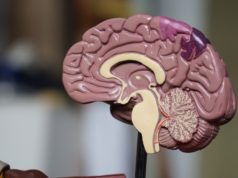
Biomarkers using mass cytometry can assess patient response to an emerging vaccine for a specific paediatric brain tumour, according to a recent multicentre study published in the Journal of Clinical Investigation.
Diffuse midline gliomas (DMG) and diffuse intrinsic pontine gliomas (DIPG) are deadly paediatric brain cancers, with fewer than 10% of patients surviving beyond two years. Traditionally these tumours are treated with radiation therapy but, according to the study, immunotherapy treatments have gained increased attention in recent years.
Previously, the study authors created a peptide vaccine for diffuse gliomas. This vaccine uses a mutation common in diffuse gliomas to trigger an immune response targeted at cancer cells—in essence, pointing the immune system at cells with this mutation and letting them attack the cancerous cells. In the current study, investigators tested safety and monitoring of the vaccine, enrolling 29 patients.
The findings show that the vaccine is safe and the biomarkers could improve clinical trials for the peptide vaccine, says study co-author Stewart Goldman (Ann & Robert H Lurie Children’s Hospital; Northwestern University Feinberg School of Medicine, Chicago, USA).
The vaccine was well-tolerated with no serious adverse events, according to the study. In addition, immunological responses were measured using mass cytometry on blood cells that allowed the investigators to measure how many T-cells were reactive to the cancer, as intended by the peptide vaccine. Increasing levels of reactive T-cells were found to be associated with a better prognosis for patients.
Other cytometry measures included measuring myeloid cells to predict patient response to the treatment—demonstrating that mass cytometry on blood samples is a viable surveillance method, according to Goldman.
“These findings will allow future trials to better understand whom to offer these therapies to, and what medications we need to avoid as to not decrease efficacy. This study clearly warrants further investigation and I hope using cytometry and other methodologies to monitor response will guide physicians in their therapeutic choices in the future,” he concluded.













